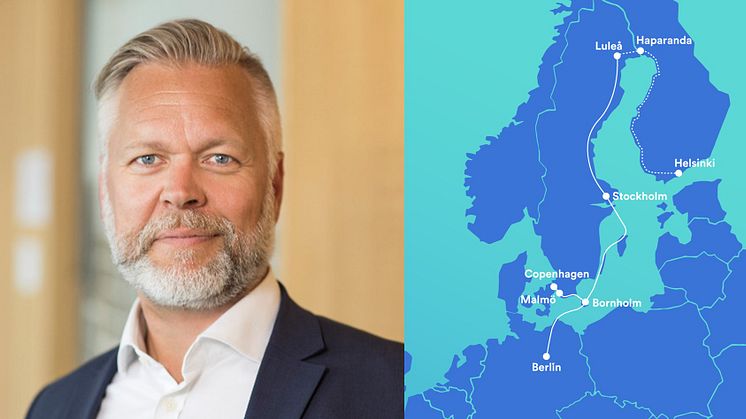
Blog post -
The Internet is Under Threat – The Digital Infrastructure is Insufficient for the Future of Business
This story was first published here in Dagens Industri on August 28th
"The Internet is Under Threat – The Digital Infrastructure is Insufficient for the Future of Business", says Pär Jansson, SVP, GlobalConnect
Swedish households consume 2.25 billion gigabytes of data every month via WiFi. With an annual growth rate of around 15%, data consumption is expected to continue growing steadily until 2030. At the same time, we are facing a new data revolution with AI and machine learning that will soon require previously unimaginable amounts of data capacity. This presents fantastic opportunities for companies to transform their businesses, but also a threat to today's digital infrastructure, which is not equipped for future data needs.
How much more data can be used before today's internet "runs out"? GlobalConnect has recently launched its Surf Index, which has mapped the data usage of 500,000 Swedish households connected to fixed fiber networks. On average, each household consumes 472 GB per month. Looking at the entire country's approximately 5 million households, that totals 2.25 billion gigabytes of data every month. This equates to about 2.25 billion hours of streamed video – or simply put, 15 hours of video per day per household, every day. This does not include businesses
To enable what we know as the "internet" and "the cloud," robust digital infrastructure is required. Just like electricity and water, the internet is a critical resource, but it also has its limitations if the infrastructure is not expanded in line with demand. In theory, a fiber cable can transmit unlimited data, but in practice, the infrastructure is limited by the hardware and capacity available. GlobalConnect is currently building a super fiber cable between Haparanda and Berlin, consisting of 200 fiber strands. It's like a digital highway with 200 lanes where data travels at the speed of light. Today, the cable has the capacity to handle all the data flowing through the Nordics. But even this will reach its limit as AI and other data-driven innovations grow
To maintain Sweden's strong position in digitalization and continue to attract investments in the tech sector, we must future-proof the infrastructure. If we do not, we risk seeing bottlenecks and congestion on the digital highways, where the internet becomes slow and sluggish. This would be devastating for businesses, innovation, and the continued development of AI-based solutions
To manage these challenges, significant investments are required from both the private sector and the public sector. It involves building more digital highways, but also strengthening and expanding existing networks. While we need to ensure that the Nordics have sufficient capacity for future data consumption, we also need to strengthen the digital infrastructure between the Nordic countries and the rest of Europe to protect against vulnerabilities
To meet these challenges, three main efforts are required:
-
Increased Investments in Digital Infrastructure: The private sector accounts for an overwhelming majority of total investments in digital infrastructure, but more funding is needed. The EU's CEF2 program has initiated important work to finance cross-border infrastructure projects, but more support is also needed at the national level to expand domestic infrastructure.
-
Faster and More Efficient Permit Processes: Building fiber, especially between countries, is time-consuming. To get the new super fiber between Haparanda and Berlin in place, GlobalConnect has negotiated over 700 agreements over four years. We need more efficient permit management and better support from authorities and municipalities to be able to roll out necessary infrastructure faster.
-
Skills Provision and Diversification of the Workforce: To meet future needs, we must ensure that Sweden has enough engineers and technical expertise. At the same time, it is crucial to attract more women and diversity to the tech sector to create a broader skills base and promote innovation
Sweden has the opportunity to remain a leading nation in digitalization and technological development, but this requires that we now make the necessary investments and structural changes. If we do not act, we risk our internet literally "running out," and the development of the business sector being slowed down – something that would have long-term consequences for both business and societal development.
